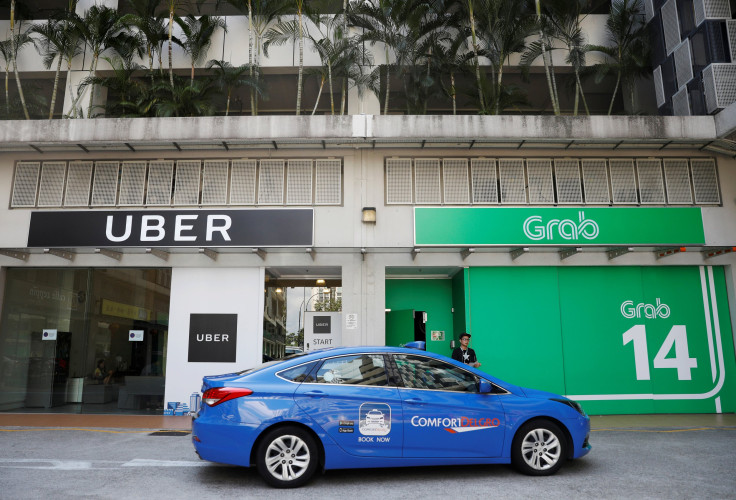Uber Bows To Grab, Sells Southeast Asia Business To Rival

Ride-hailing service Uber’s business in Southeast Asia has been acquired by regional rival Grab, it was announced Monday. The deal also includes the sale of Uber’s food delivery business, UberEats, and the company gets a stake in Grab.
Following the deal, Grab “takes over Uber’s operations and assets in Cambodia, Indonesia, Malaysia, Myanmar, the Philippines, Singapore, Thailand and Vietnam. As part of the acquisition, Uber will take a 27.5 percent stake in Grab and Uber CEO Dara Khosrowshahi will join Grab’s board,” it said in the announcement.
Grab is backed by Japan’s SoftBank — it owns 15 percent stake in Uber as well — and also by China’s Didi Chuxing, to which Uber had sold its Chinese business in August 2016 in a deal worth $35 billion. The company has raised over $4 billion in funding so far, and was valued at about $6 billion during its last round of fundraising. Grab also has a mobile wallet called GrabPay, as well as a financial services platform called Grab Financial.
“Today’s acquisition marks the beginning of a new era. The combined business is the leader in platform and cost efficiency in the region. Together with Uber, we are now in an even better position to fulfil our promise to outserve our customers. Their trust in us as a transport brand allows us to look towards the next step as a company: improving people’s lives through food, payments and financial services,” Anthony Tan, group CEO and co-founder of Grab, said in the statement.
Khosrowshahi, who congratulated Grab in the same statement, reportedly sent an email to employees in Southeast Asia, in which he said Uber’s stake in Grab was worth several billion dollars, coming off the $700 million invested by the company in the region. He also said 500 Uber employees working in the eight countries would be absorbed by Grab, as part of the deal.
Buying the UberEats business seems to be an important move for Grab, given what co-founder Tan Hooi Ling had to say.
“We will rapidly and efficiently expand GrabFood into all major SEA countries in the next quarter. We’re going to create more value for our growing ecosystem of consumers, drivers, agents – and now merchants and delivery partners. GrabFood will also be another great use case to drive the continued adoption of GrabPay mobile wallet and support our growing financial services platform,” he said.
The move by Uber marks the third regional exit for the ride-hailing company in as many years. After China in 2016, Uber folded up in Russia in July 2017, where it sold its business to local internet heavyweight Yandex, which also operates a taxi service. In his email, the Uber CEO referred to this, and said these moves helped the company focus on its core markets, such as India, Latin America and the Middle East. It faces stiff local competition in at least two of those regions — from Ola in India and Careem in the Middle East.
“It is fair to ask whether consolidation is now the strategy of the day, given this is the third deal of its kind, from China to Russia and now Southeast Asia. The answer is no. One of the potential dangers of our global strategy is that we take on too many battles across too many fronts and with too many competitors. This transaction now puts us in a position to compete with real focus and weight in the core markets where we operate, while giving us valuable and growing equity stakes in a number of big and important markets where we don’t,” Khosrowshahi wrote.
© Copyright IBTimes 2025. All rights reserved.





















